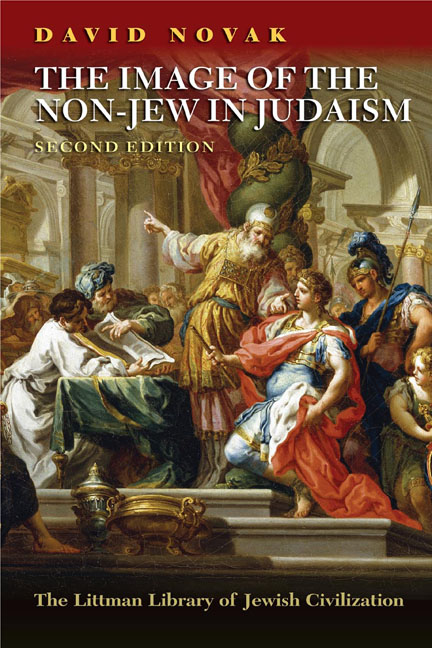Book contents
- Frontmatter
- Dedication
- Preface
- Acknowledgments
- Contents
- Chapter Summaries
- 1 The Origins of the Noahide Laws
- 2 The Law of Adjudication
- 3 The Law of Blasphemy
- 4 The Law of Idolatry
- 5 The Law of Homicide
- 6 The Law of Sexual Relations
- 7 The Law of Robbery
- 8 The Law of the Torn Limb
- 9 Aggadic Speculation
- 10 Maimonides’ Theory of Noahide Law
- 11 Albo's Theory of Noahide Law
- 12 Late Medieval Developments
- 13 Moses Mendelssohn and his School
- 14 Hermann Cohen and the Jewish Neo-Kantians
- 15 Conclusion
- Afterword
- List of Abbreviations
- Notes
- Bibliography
- Index
4 - The Law of Idolatry
- Frontmatter
- Dedication
- Preface
- Acknowledgments
- Contents
- Chapter Summaries
- 1 The Origins of the Noahide Laws
- 2 The Law of Adjudication
- 3 The Law of Blasphemy
- 4 The Law of Idolatry
- 5 The Law of Homicide
- 6 The Law of Sexual Relations
- 7 The Law of Robbery
- 8 The Law of the Torn Limb
- 9 Aggadic Speculation
- 10 Maimonides’ Theory of Noahide Law
- 11 Albo's Theory of Noahide Law
- 12 Late Medieval Developments
- 13 Moses Mendelssohn and his School
- 14 Hermann Cohen and the Jewish Neo-Kantians
- 15 Conclusion
- Afterword
- List of Abbreviations
- Notes
- Bibliography
- Index
Summary
Introduction
In the order of the seven laws of the sons of Noah found in the Tosefta, the second is the prohibition of idolatry, followed by the prohibition of blasphemy. However, in the baraita presented in the Babylonian Talmud, the order is reversed. In the Gemara the Amora R. Johanan bases this on the sequence of words in Gen. 2:16, where the third word is “God” (elohim). This word is then compared to its use in the prohibition of idolatry in the Decalogue, namely, “there shall be no other gods in My presence” (Ex. 20:3). In the same Gemara, R. Isaac derives the prohibition of idolatry from the first word in Gen. 2:16, “AndHe commanded” (vayitzav). This word is then compared with the word in Ex. 32:8 to describe how the worshippers of God had “commanded them” (tziviytim). The Midrash, which also accepts this order, connects the first word in Gen. 2:16 with the word tzav in Hosea 5:11, where idolatrous decrees are condemned.
As we saw earlier, the sixteenth-century Talmudist Moses Isserles interpreted the dispute between R. Johanan and R. Isaac as more than a matter of specific textual exegesis but rather as a general theoretical dispute over the essence of the law forNoahides. According to Isserles, R. Johanan thinks that Noahide law is an essentially gentile phenomenon, amatter in which Jews are interested intellectually. But R. Isaac maintains that Noahide law is the branch of Jewish law to be enforced among gentiles under Jewish authority. In other words, it is a matter of Jewish political interest. This difference in theory then leads to the exegetical difference regarding Gen. 2:16. R. Johanan interprets the first word (vayitzav) as referring to adjudication (din). Consequently, interhuman normativity is the beginning of the Noahide law and its foundation. For R. Isaac, on the other hand, vayitzav refers to the prohibition of idolatry. Therefore, for him, God's absolute authority over humanity is the origin of the Noahide law and its foundation. Hence, Maimonides, who follows R. Isaac, lists the prohibition of idolatry as the first Noahide law. If the foundation of Noahide law is the affirmation of God's absolute sovereignty over humanity, the radical substitution of which is idolatry, then its foundation is exactly the same as the foundation of Jewish law, that is, “I am the Lord your God …
- Type
- Chapter
- Information
- The Image of the Non-Jew in JudaismThe Idea of Noahide Law, pp. 65 - 96Publisher: Liverpool University PressPrint publication year: 2011



